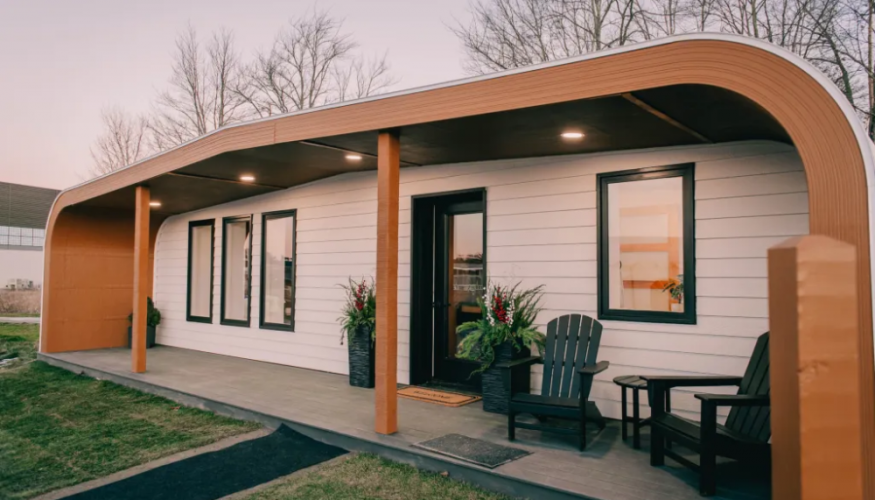The world’s largest 3D printer is at UMaine. It just unveiled an even bigger one.

The University of Maine, a New England Council member, created a 3D printer that could build a house, cutting construction times and costs. Now, it is one of the largest in the world and could be capable of building entire neighborhoods. The recently revealed 3D printer is four times the size of the original one, commissioned less than five years ago, and can use bio-based materials to address affordable housing issues as well.
This new massive printer “opens up new research frontiers to integrate these collaborative robotics operations at a very large scale with new sensors, high-performance computing, and artificial intelligence,” according to the Advanced Structures & Composite Center director Center, Habib Dagher. It is here where UMaine houses its printers. Those attending the unveiling event included representatives from the Departments of Defense, Energy, and Housing, as well as others who have a vested interest in the types of technologies that will be made available by the printer.
Heidi Shyu, the Undersecretary of Defense for Research and Engineering, described the printer as a “beacon of innovation.” Housed on the University of Maine campus, this printer’s substantial frame occupies a large building and is capable of printing materials up to 96 feet long, 32 feet wide, and 18 feet high. It consumes up to 500 pounds of material per hour. The predecessor to this printer was introduced in 2019 and specialized in constructing 600-square-foot single-family homes from wood fiber and bio-resin materials, which are recyclable. This innovation was in response to Maine Housing’s projection that Maine will need 80,000 new homes within the next six years. According to the UN Environment Programme, the buildings and construction sector is responsible for approximately 37% of global greenhouse gas emissions, stemming from the production and use of materials such as cement and steel. These printers play a crucial role in streamlining manufacturing processes, combating climate change, and encouraging the development of similar technologies in the future.
The New England Council would like to congratulate the University of Maine on this revolutionary new step forward in combating both climate change and housing needs.
Read for more from the Portland Press Herald.